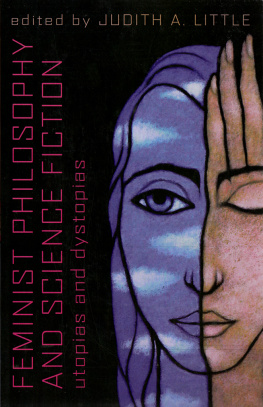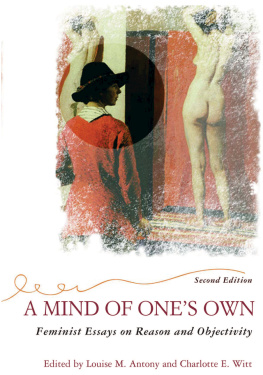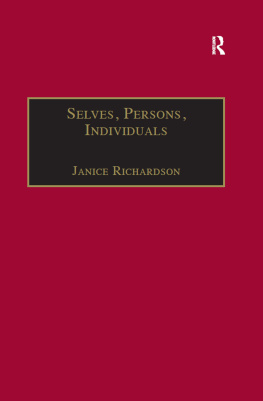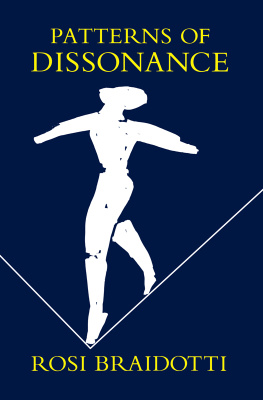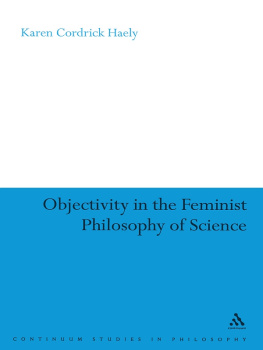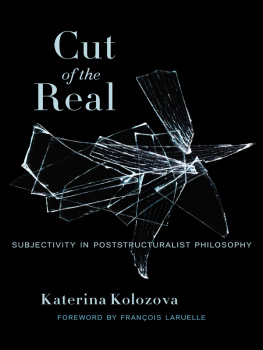Feminist Philosophy
Here you can read online Feminist Philosophy full text of the book (entire story) in english for free. Download pdf and epub, get meaning, cover and reviews about this ebook. year: 2017, genre: Art. Description of the work, (preface) as well as reviews are available. Best literature library LitArk.com created for fans of good reading and offers a wide selection of genres:
Romance novel
Science fiction
Adventure
Detective
Science
History
Home and family
Prose
Art
Politics
Computer
Non-fiction
Religion
Business
Children
Humor
Choose a favorite category and find really read worthwhile books. Enjoy immersion in the world of imagination, feel the emotions of the characters or learn something new for yourself, make an fascinating discovery.
Feminist Philosophy: summary, description and annotation
We offer to read an annotation, description, summary or preface (depends on what the author of the book "Feminist Philosophy" wrote himself). If you haven't found the necessary information about the book — write in the comments, we will try to find it.
Unknown: author's other books
Who wrote Feminist Philosophy? Find out the surname, the name of the author of the book and a list of all author's works by series.
Feminist Philosophy — read online for free the complete book (whole text) full work
Below is the text of the book, divided by pages. System saving the place of the last page read, allows you to conveniently read the book "Feminist Philosophy" online for free, without having to search again every time where you left off. Put a bookmark, and you can go to the page where you finished reading at any time.
Font size:
Interval:
Bookmark:
Vonda N. McIntyre
(1973)
McIntyre embodies the identification of women with nature in the character Snake, a healer with a most unusual method, in a postapocalyptic world. Snake willingly suffers hunger and exhaustion to help the sick. She also is resigned to others fear and revulsion of her and her art, but realizes too late the tragic effect irrational mistrust can have on her ability to heal.
T he little boy was frightened. Gently, Snake touched his hot forehead.
Behind her, three adults stood close together, watching, suspicious, afraid to show their concern with more than narrow lines around their eyes. They feared Snake as much as they feared their only childs death. In the dimness of the tent, the flickering lamplights gave no reassurance.
The child watched with eyes so dark the pupils were not visible, so dull that Snake herself feared for his life. She stroked his hair. It was long and very pale, a striking color against his dark skin, dry and irregular for several inches near the scalp. Had Snake been with these people months ago, she would have known the child was growing ill.
Bring my case, please, Snake said.
The childs parents started at her soft voice. Perhaps they had expected the screech of a bright jay or the hissing of a shining serpent. This was the first time Snake had spoken in their presence. She had only watched when the three of them had come to observe her from a distance and whisper about her occupation and her youth; she had only listened and then nodded when finally they came to ask her help. Perhaps they had thought she was mute.
The fair-haired younger man lifted her leather case. He held the satchel away from his body, leaning to hand it to her, breathing shallowly with nostrils flared against the faint smell of musk in the dry desert air. Snake had almost accustomed herself to the kind of uneasiness he showed; she had already seen it often.
When Snake reached out, the young man jerked back and dropped the case. Snake lunged and barely caught it, gently set it on the felt floor and glanced at him with reproach. His husband and his wife came forward and touched him to ease his fear. He was bitten once, the dark and handsome woman said. He almost died. Her tone was not of apology, but of justification.
Im sorry, the younger man said. Its ..He gestured toward her; he was trembling and trying visibly to control the reactions of his fear. Snake glanced down, to her shoulder, where she had been unconsciously aware of the slight weight and movement. A tiny serpent, thin as the finger of a baby, slid himself around her neck to show his narrow head below her short black curls. He probed the air with his trident tongue in a leisurely manner, out, up and down, in, to savor the taste of the smells. Its only Grass, Snake said. He cannot harm you. If he were bigger, he might frighten; his color was pale green, but the scales around his mouth were red, as if he had just feasted as a mammal eats, by tearing. He was, in fact, much neater.
The child whimpered. He cut off the sound of pain; perhaps he had been told that Snake, too, would be offended by crying. She only felt sorry that his people refused themselves such a simple way of easing fear. She turned from the adults, regretting their terror of her but unwilling to spend the time it would take to convince them their reactions were unjustified. Its all right, she said to the little boy. Grass is smooth and dry and soft, and if I left him to guard you, even death could not reach your bedside. Grass poured himself into her narrow, dirty hand, and she extended him toward the child. Gently. He reached out and touched the sleek scales with one fingertip. Snake could sense the effort of even such a simple motion, yet the boy almost smiled.
What are you called?
He looked quickly toward his parents, and finally they nodded. Stavin, he whispered. He had no strength or breath for speaking.
I am Snake, Stavin, and in a little while, in the morning, I must hurt you. You may feel a quick pain, and your body will ache for several days, but you will be better afterward.
He stared at her solemnly. Snake saw that though he understood and feared what she might do, he was less afraid than if she had lied to him. The pain must have increased greatly as his illness became more apparent, but it seemed that others had only reassured him and hoped the disease would disappear or kill him quickly.
Snake put Grass on the boys pillow and pulled her case nearer. The lock opened at her touch. The adults still could only fear her; they had had neither time nor reason to discover any trust. The wife was old enough that they might never have another child, and Snake could tell by their eyes, their covert touching, their concern, that they loved this one very much. They must, to come to Snake in this country.
It was night, and cooling. Sluggish, Sand slid out of the case, moving his head, moving his tongue, smelling, tasting, detecting the warmths of bodies.
Is that... ? The older husbands voice was low and wise, but terrified, and Sand sensed the fear. He drew back into striking position and sounded his rattle softly. Snake spoke, moving her hand, and extended her arm. The pit viper relaxed and flowed around and around her slender wrist to form black and tan bracelets. No, she said. Your child is too ill for Sand to help. I know it is hard, but please try to be calm. This is a fearful thing for you, but it is all I can do.
She had to annoy Mist to make her come out. Snake rapped on the bag and finally poked her twice. Snake felt the vibration of sliding scales, and suddenly the albino cobra flung herself into the tent. She moved quickly, yet there seemed to be no end to her. She reared back and up. Her breath rushed out in a hiss. Her head rose well over a meter above the floor. She flared her wide hood. Behind her, the adults gasped, as if physically assaulted by the gaze of the tan spectacle design on the back of Mists hood. Snake ignored the people and spoke to the great cobra, focusing her attention by her words. Ah, thou. Furious creature. Lie down; tis time for thee to earn thy dinner. Speak to this child, and touch him. He is called Stavin. Slowly, Mist relaxed her hood and allowed Snake to touch her. Snake grasped her firmly behind the head and held her so she looked at Stavin. The cobras silver eyes picked up the yellow of the lamplight. Stavin, Snake said, Mist will only meet you now. I promise that this time she will touch you gently.
Still, Stavin shivered when Mist touched his thin chest. Snake did not release the serpents head, but allowed her body to slide against the boys. The cobra was four times longer than Stavin was tall. She curved herself in stark white loops across his swollen abdomen, extending herself, forcing her head toward the boys face, straining against Snakes hands. Mist met Stavins frightened stare with the gaze of lidless eyes. Snake allowed her a little closer.
Mist flicked out her tongue to taste the child.
The younger husband made a small, cut-off, frightened sound. Stavin flinched at it, and Mist drew back, opening her mouth, exposing her fangs, audibly thrusting her breath through her throat. Snake sat back on her heels, letting out her own breath. Sometimes, in other places, the kinfolk could stay while she worked. You must leave, she said gently. Its dangerous to frighten Mist.
I wont...
Im sorry. You must wait outside.
Perhaps the younger husband, perhaps even the wife, would have made the indefensible objections and asked the answerable questions, but the older man turned them and took their hands and led them away.
I need a small animal, Snake said as he lifted the tent flap. It must have fur, and it must be alive.
One will be found, he said, and the three parents went into the glowing night. Snake could hear their footsteps in the sand outside.
Font size:
Interval:
Bookmark:
Similar books «Feminist Philosophy»
Look at similar books to Feminist Philosophy. We have selected literature similar in name and meaning in the hope of providing readers with more options to find new, interesting, not yet read works.
Discussion, reviews of the book Feminist Philosophy and just readers' own opinions. Leave your comments, write what you think about the work, its meaning or the main characters. Specify what exactly you liked and what you didn't like, and why you think so.

